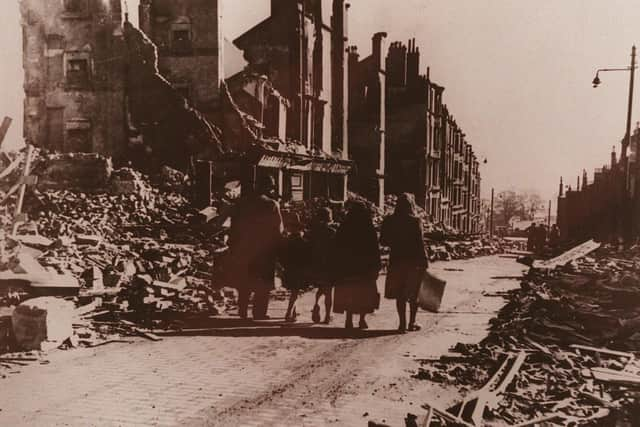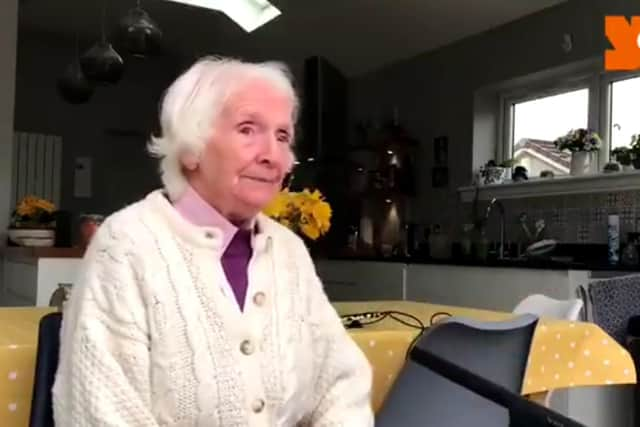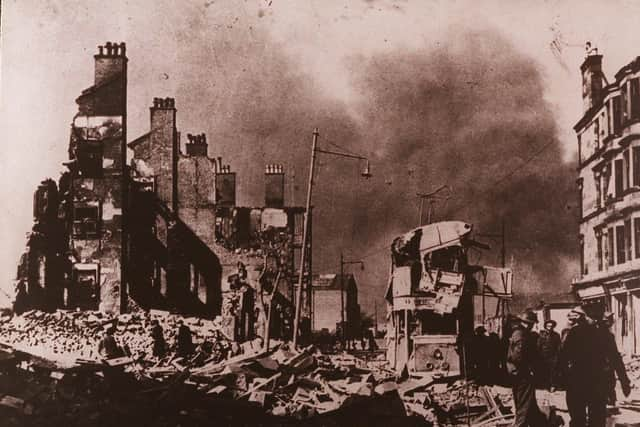Clydebank Blitz survivor recalls night of terror 80 years on
For then 14-year-old Sarah Kelly, like thousands of others, the devastation wrought by the Clydebank Blitz would have a profound impact on life as she knew it.
Over the course of two nights in March 1941, Clydebank, a densely-populated industrial centre of 55,000 inhabitants, faced an aerial bombardment the likes of which has never been seen before or since in Scotland.
Advertisement
Hide AdAdvertisement
Hide AdWhen the dust settled, the district had been rendered practically unrecognisable, with an estimated two thirds of the town’s 12,000 homes either levelled to the ground or left broken and uninhabitable. Just seven homes lay untouched by Hermann Göring’s flying war machine.
Speaking to Clyde 1 ahead of the 80th anniversary of the events of 13 and 14 March 1941, Sarah Kelly, now aged 94, has revisited the moment everything changed.
Ms Kelly had been playing outside that day and was called up to her tenement home at Granville Street, which she shared with her parents and ten siblings, around 8pm, approximately half an hour before the first of the air raid sirens went off.
She said: “Several nights before the Blitz, on several occasions, the siren had gone off. Everyone had gone to the shelter and whatnot, but nothing happened.”
“So the night of the Blitz, when the siren went off, we were getting ready to go to bed. My mammy came through and said “it’s OK, just carry on and go to bed.” Shortly after that she came back through and said it was a bit more serious.”


As they became acquainted with the terrifying whistling sound of the German bombs, Ms Kelly recalls how everyone around her thought their number was up.
"You could hear the planes going over, then going away again. Then the bombs started falling.
“They made a terrible sound. They whistled down. And every time one came down, everybody thought it was coming for us. Everybody was in the same boat.
Advertisement
Hide AdAdvertisement
Hide Ad"Most people went down to the close (the bottom of the tenement stair), which had been fortified as a shelter, but, because we were a big family, we stayed where we were.”


Following the first night of the Blitz, Sarah Kelly and her family were told they no longer had a home to go back to. They would spend the second night in a shelter, where Sarah and her sister became separated from the rest of the family.
She recalls: “We didn’t have a house or anything. During the night we were told that the shelter next door had been destroyed by a high explosive bomb. Josie and I thought my mammy and daddy and the rest of the family were there, so we were very worried.”
The Clydebank Blitz altered life for Sarah Kelly and her family forever, as many of her brothers and sisters escaped the war ravaged town.
She adds: “We were never together again as one family. Two of my brothers got married, and my sister went to London to the Civil Service. It made a big difference to us.”


A message from the Editor:
Thank you for reading this article. We're more reliant on your support than ever as the shift in consumer habits brought about by coronavirus impacts our advertisers.
If you haven't already, please consider supporting our trusted, fact-checked journalism by taking out a digital subscription at https://www.scotsman.com/subscriptions.
Comments
Want to join the conversation? Please or to comment on this article.